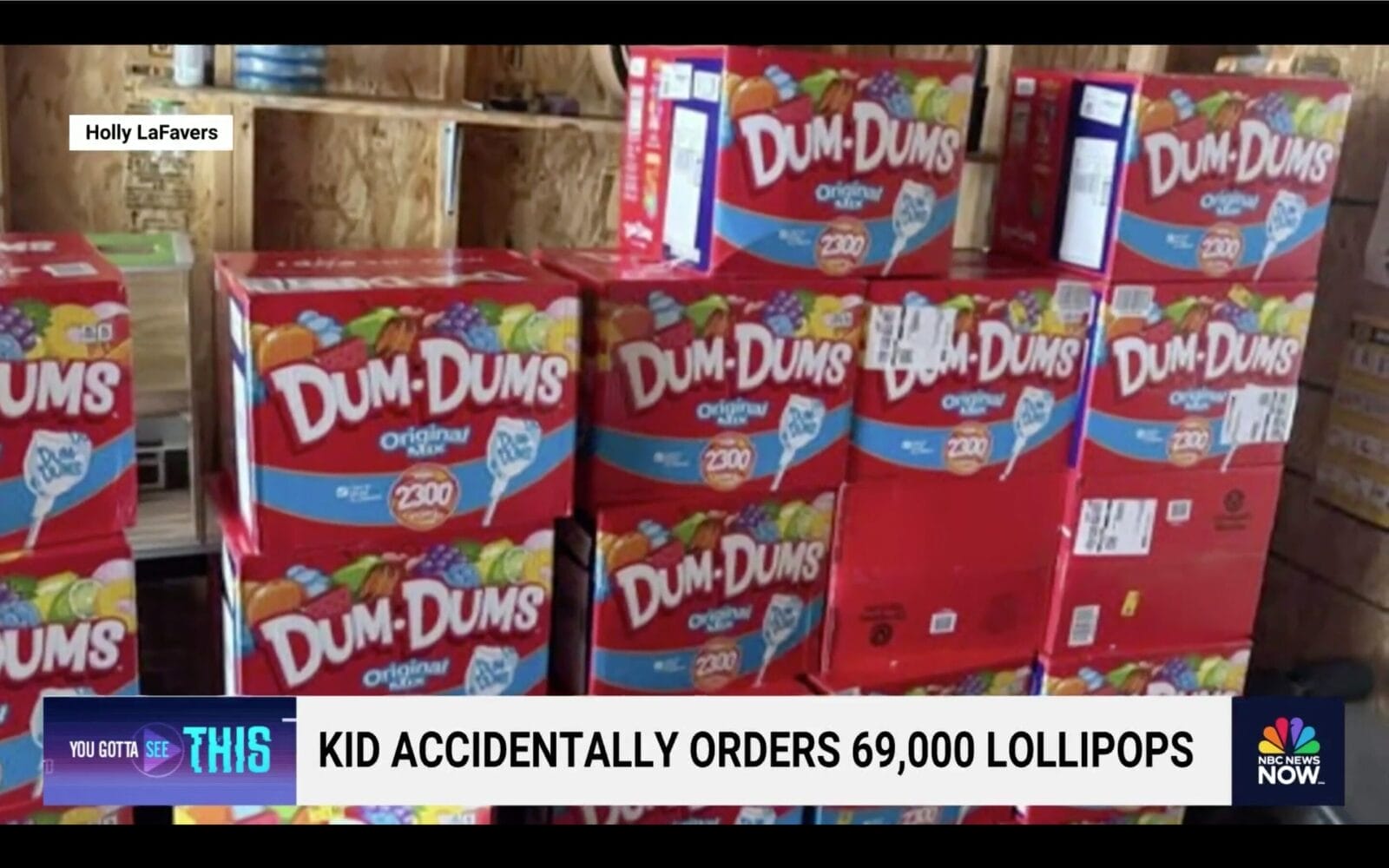Kentucky mom Holly LaFavers thought it was just another Sunday—until she checked her bank account and saw it was overdrawn. The reason? A $4,200 Amazon order placed by her 8-year-old son, Liam. Then the boxes started arriving—22 of them, stacked high on the porch. Inside: nearly 70,000 lollipops.
Liam wanted to throw a backyard carnival for his friends and hand out lollipops as prizes.
What followed was a whirlwind of panic, social media outreach, community support—and eventually, a surprisingly sweet resolution.
“My suckers are here!”
When Holly realized what had happened, she rushed to stop the delivery. “I was panicking,” she told Good Morning America. “Liam went outside to ride his scooter and started screaming, ‘My suckers are here!’” Her porch was buried in candy—and more was still on the way.
She managed to intercept some of the final cases at the post office, but Amazon initially declined to offer a refund. So she did what many moms would do in a moment of desperation: she posted on Facebook.
What do you do with 70,000 lollipops? Call in the village.
Within two hours, friends, family, and total strangers had stepped up. Local banks, doctor’s offices, and even a chiropractor bought up the candy. Her small Kentucky community didn’t just offer sympathy—they offered solutions.
Eventually, Amazon reversed course and refunded the full amount.
But the heart of this story isn’t just about the refund—it’s about the way Holly met the moment. With patience. With humor. And with grace.
This wasn’t mischief—it was childhood in action
Liam, who has fetal alcohol spectrum disorder (FASD), wasn’t acting out—he was trying to share joy. His diagnosis shapes how he experiences the world, but the instinct behind his order—excitement, generosity, creativity—is something every parent can recognize. Whether your child is neurodivergent or not, most parents have had a moment when their child’s imagination and impulse collided into one unforgettable mess.
What this moment teaches us about parenting in the digital age
As children gain more access to devices, even well-meaning intentions—like Liam’s plan to throw a carnival—can turn into costly surprises. It’s not just about screen limits; it’s about teaching digital responsibility; early on.
A 2020 Pew Research Center study found that approximately 36% of parents with children under 12 reported their child ever uses or interacts with a voice-activated assistant, such as Apple’s Siri or Amazon Alexa. Holly’s story is a real-world reminder of how quickly that access can spiral into something bigger.
Parenting in the digital age means guiding kids with both boundaries and understanding—because mistakes are part of how they learn.
Related: What age should a kid get a phone? It may be later than you think
A sweet mess with a lasting message
At the heart of this story is a reminder of the complexities and joys of raising a neurodivergent child. Liam, who has fetal alcohol spectrum disorder (FASD), might approach the world differently than other children, but his actions—ordering the lollipops—show his natural desire to share joy with others. His decision to buy thousands of candies wasn’t driven by impulsiveness or defiance, but by a big-hearted plan to throw a carnival for his friends, a reflection of his generous spirit.
Liam’s carnival didn’t go exactly as planned. But what he showed the world—through lollipops, of all things—is that even childhood chaos can come from a place of love. And what Holly showed us is that you don’t need to control every moment to model strength and compassion.
Because sometimes the real parenting win isn’t about preventing the mistake—it’s about how you show up afterward.
Related: Even 5 hours of screen time per day is OK for school-aged kids, says new study
Sources:
- Pew Research Center. 2020. “Children’s engagement with digital devices, screen time”

